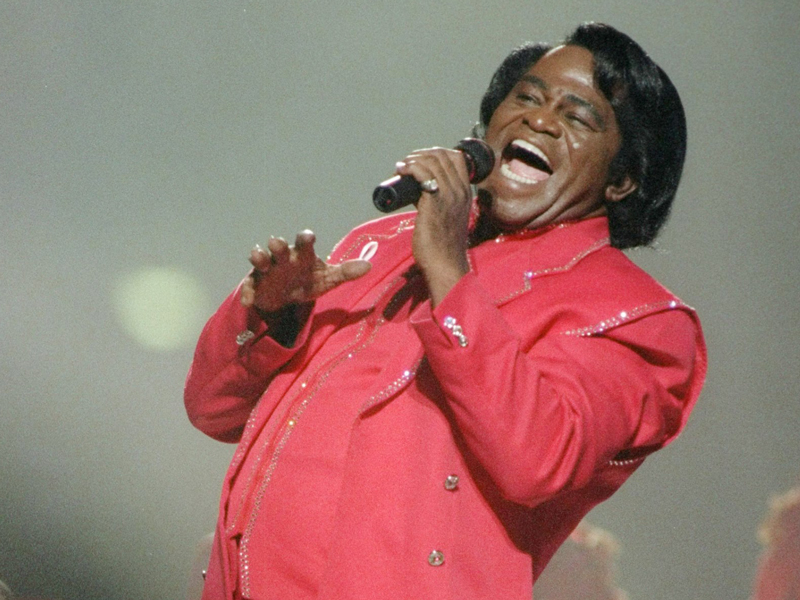6 things you didn’t know about the city of Augusta
James Brown grew up there for a start... What else should we know about Augusta?


Augusta is not just all about the U.S. Masters. Here we take a look at 6 interesting things about the historic city.
For most people who read this, mention of Augusta triggers one immediate thought – The U.S. Masters. For one week every April, the eyes of the sporting world turn on this small corner of Georgia, near the border with South Carolina. But the city is still there for the other 51 weeks and it’s a rather interesting place with a long history. Here are 6 things you might not have known about the city of Augusta:
1 – James Brown, the great soul singer grew up in Augusta and frequently returned to his hometown after he found fame. He bought the local radio station and was known to give presents and money to local children when he visited. There’s now a life-size statue of James Brown on Broad Street. Pose with the Godfather of Soul, send a text to a designated number and a fixed camera will take a photo of you and send it straight to your mobile!
Other famous people who come from Augusta include: Actor Laurence Fishburne, musician Amy Grant and wrestler Hulk Hogan!
2 – Augusta is a historic place. The land on which Augusta sits was used as a crossing point of the Savannah River by indigenous peoples long before European settlers arrived. When they did, British General James Oglethorp founded the province of Georgia between the Savannah and Altamaha rivers in 1732 and became the first Governor. Three years later he sent troops to explore up the Savannah River and establish a settlement at its navigable head. In 1736 Oglethorp named this settlement Augusta after Princess Augusta of Saxe-Gotha, the wife of the Prince of Wales and mother of the future King, George III.
3 - George Walton – the youngest signatory of the Declaration of Independence – was twice Governor of Georgia and he lived the last years of his life in a house he built in Augusta called “Meadow Garden.” It’s one of Georgia’s oldest residences and the oldest documented house in Augusta. You can go and tour round it.
4 - The Augusta Chronicle has its headquarters on historic Broad Street. It’s one of the very oldest newspapers in the USA to remain in publication. The Chronicle began life back in 1785. (That’s the same year as The Times.) It's famed for its coverage of The Masters.
Get the Golf Monthly Newsletter
Subscribe to the Golf Monthly newsletter to stay up to date with all the latest tour news, equipment news, reviews, head-to-heads and buyer’s guides from our team of experienced experts.
5 - The weather in Augusta tends to be just about perfect in Masters week (save the odd thunderstorm.) But it’s pretty good all-year-round really. The winters are short and relatively mild, although the summers can get very hot and extremely humid. During June, July and August an average of 13 inches of rain will fall – that’s almost three times more than in London and almost twice as much as Glasgow. That’s pretty wet.
6 - Work. Unsurprisingly, very few people in Augusta have a job that has anything to do with The Masters. According to the last census, there were just under 200,000 people living in Augusta. The biggest employer is the U.S. Army at Fort Gordon – home of the U.S. Army Signal Corps. It employs some 20,000 people. Other big employers include Georgia Regents University and the Richmond County School System.

Fergus is Golf Monthly's resident expert on the history of the game and has written extensively on that subject. He has also worked with Golf Monthly to produce a podcast series. Called 18 Majors: The Golf History Show it offers new and in-depth perspectives on some of the most important moments in golf's long history. You can find all the details about it here.
He is a golf obsessive and 1-handicapper. Growing up in the North East of Scotland, golf runs through his veins and his passion for the sport was bolstered during his time at St Andrews university studying history. He went on to earn a post graduate diploma from the London School of Journalism. Fergus has worked for Golf Monthly since 2004 and has written two books on the game; "Great Golf Debates" together with Jezz Ellwood of Golf Monthly and the history section of "The Ultimate Golf Book" together with Neil Tappin , also of Golf Monthly.
Fergus once shanked a ball from just over Granny Clark's Wynd on the 18th of the Old Course that struck the St Andrews Golf Club and rebounded into the Valley of Sin, from where he saved par. Who says there's no golfing god?
-
 'He Won't Stop Striving For Improvement' - Sports Psychologist Believes Rory McIlroy Has The 'Mindset, Focus And Drive' To Carry On Excellent Start To 2025 Season
'He Won't Stop Striving For Improvement' - Sports Psychologist Believes Rory McIlroy Has The 'Mindset, Focus And Drive' To Carry On Excellent Start To 2025 SeasonWe spoke to experienced Sports Psychologist, Gareth Shaw, about McIlroy's incredible Masters win and how the five-time Major can push on even further in 2025
By Matt Cradock
-
 I Think I've Found My New Favorite Club Of 2025 And It Might Surprise You
I Think I've Found My New Favorite Club Of 2025 And It Might Surprise YouPGA Pro and driver expert Joe Ferguson has been testing out the latest of TaylorMade’s ‘retro’ mini-driver offerings, the R7 Quad Mini, and it didn't disappoint…
By Joe Ferguson